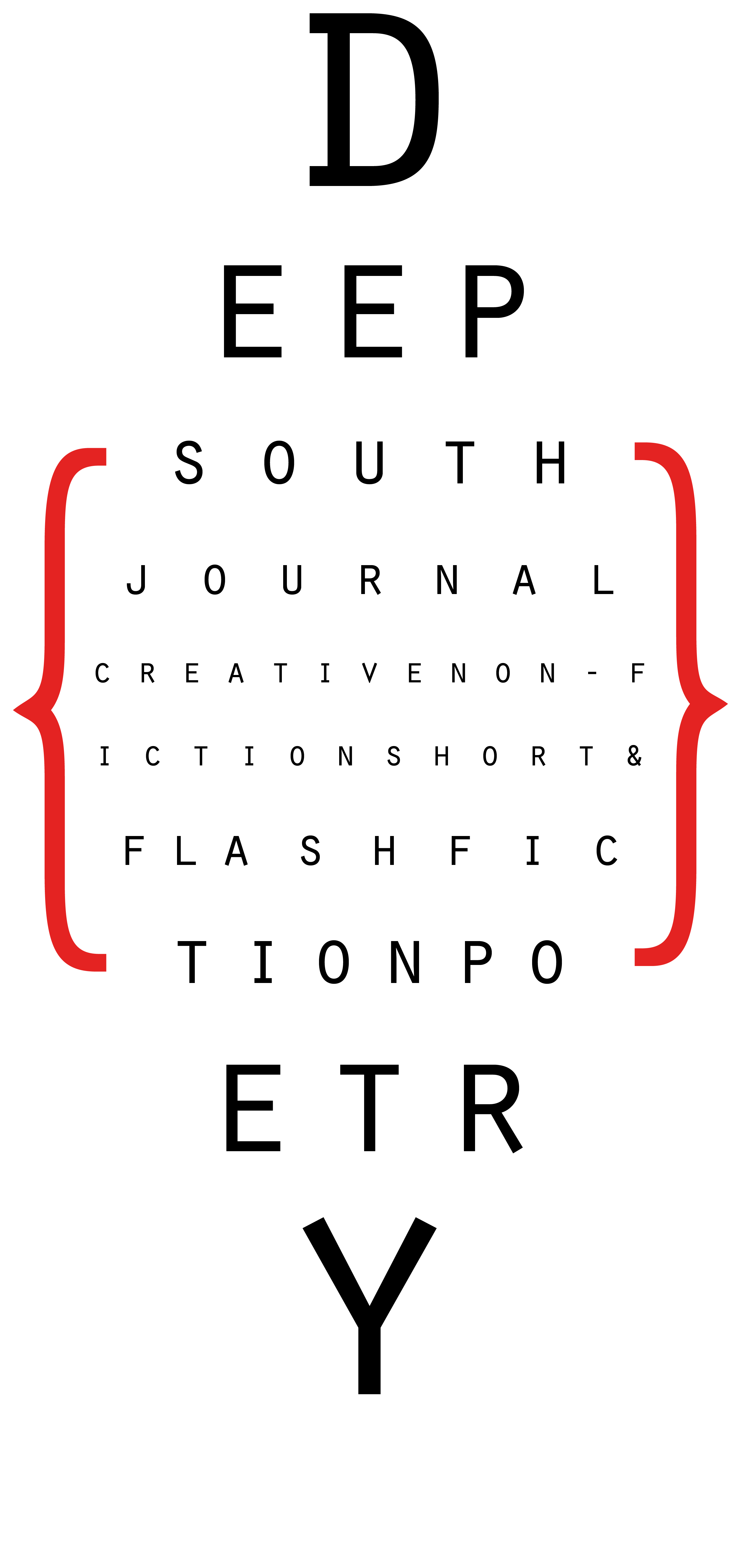deep south 2013
{ }
dsj fiction
The Light Here Changes
She taps out the beat of the song, her fingers sharp against the wood of the piano, as steady as a metronome. Her nephew's tiny fingers work hard to press down each key. He's too small to reach the pedals from the seat. Finally he fumbles; stops. He's looking up at her as she pushes away from the instrument.
“What did I tell you about mistakes?”
“Just keep going.”
“So why did you stop? You'll never learn if you keep doing that.”
She smoothes her skirt, standing upright by the window. Even with her back to him she can see his eyes, so like those of her sister; can feel them regarding her. After a moment, he begins to play again.
He's a good boy. An obedient boy. Goodness knows other children his age, all noise and mud and dirt and germs. But not him. Only, sometimes she feels like he's not quiet so much as aloof, as if there's a great deal of noise going on in his head that he chooses not to share with her. And the way he watches her – as if he blames her for something. Her hand picks at the lace of the curtain, in time to the music. His playing is technically proficient, perhaps even good enough to be called a prodigy. He is only six years old. She thinks of her sister again and sighs, and the clock on the mantlepiece ticks resolutely by.
In the parlour, the light is far too bright. He squints at the windows, regretting the size and shape of them, the way they let the world stream in. Far better for them to be small and dim. The room is not very big, and with the windows as they are, curtains drawn back, the world seems to fill all of it up, making it difficult to breathe.
His aunt taps his shoulder. A silent signal. He is slumping again. With a long intake of breath he straightens up, chewing on his lip, trying to appear as if he's listening. A man he has never seen before in his life sits across from them both. His belly is round and bulging beneath his waistcoat, but his eyes are kind. His beard is completely white. The boy imagines that he is a relative of Santa Claus, checking up on the good and bad children. This makes him straighten up again without prompting. He minds his manners. He folds his hands tightly in his lap.
The Santa Claus man squints down at the boy.
“Poor little chap,” he says. “Terrible tragedy, just terrible. My condolences to you both.”
Fluorescent streaks of light flame in his beard like miniature candles. Aunt is talking now, and his attention is wandering, back to the window. He thinks that his parents might be out there, somewhere, in the brilliant sun.
Cook keeps a watering can by the back door. When he has finished with his lesson, he goes out and fills it up at the stream at the bottom of the garden. His aunt watches from the window of the parlour.
“He barely talks. I don't know what to do with him,” she says. The woman in the armchair nods sympathetically, and takes another sip of tea. In one hand she holds a tiny cake, thick with cream and jam. Her little finger sticks out and she slurps slightly as she drinks. The boy's aunt pictures the woman's round face, focusing with particular venom on her pink eyelids and fat, flapping mouth.
“He's only eight,” says the woman. “You'll bring him around in time. Or you could send him away to school. That worked wonders for my Harry.”
Her Harry joins the boy in the garden a moment later. Twice as fat and nearly a foot taller, he pushes the other child to one side, slopping water all over the ground. The aunt watches as her nephew goes still, not bothering to respond to the elder's torments. Another child would have fought. She sighs.
“Perhaps I will,” she says, turning back to her guest.
He trips over the mop on his way out. He is always tripping over things. His aunt is waiting at the door with her hat in her hand and the bright, bitter light on her shoulders. The day is overcast. He can tell just by looking. He is ten years old and leaving home after a holiday. He knows, of course, that it isn't really home. He knows his mother was beautiful and his father was a handsome soldier. He knows that he was born somewhere far away from here. But this is all he knows.
His aunt catches him before he can fall, dusting him off with brisk strokes. Her hands rest on his shoulders for a moment and she looks down at him.
“You're growing up,” she says, surprised.
“Yes, Aunt.”
And he is surprised, too, as an unfamiliar tenderness ambushes her expression. She regards him with a face that might have looked like his mother's, had he known her. There are lines across it now, and her hair pulled back is grey, suiting the colour under her skin.
“You look so much like her, you know,” she says, and she's not really talking to him, he knows that, she's talking to someone else. Perhaps his mother. She smoothes his hair.
“Off you go. The car is waiting.”
Sarah Reese has a BA and PGDipArts in Philosophy and Religious Studies from Massey University, and recently completed her third year of study towards an LLB and second BA (in English and Linguistics) at the University of Otago. She has been writing on and off for several years and is a long-distance member of the Palmerston North Writers Group, as well as a member of the Otago University Literary Society and frequent contributor to their student e-zine,The Scribbler. The Light Here Changes is her first piece of published fiction.



